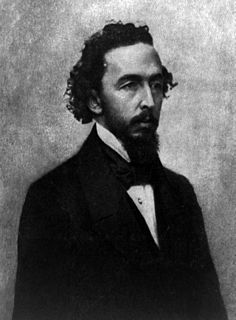A Quote by Friedrich August von Hayek
To undertake the direction of the economic life of people with widely divergent ideals and values is to assume responsibilities which commit one to the use of force; it is to assume a position where the best intentions cannot prevent one from being forced to act in a way which to some of those affected must appear highly immoral. This is true even if we assume the dominant power to be as idealistic and unselfish as we can possibly conceive. But how small is the likelihood that it will be unselfish, and how great are the temptations!
Quote Topics
Act
Affected
Appear
Assume
Being
Best
Best Intentions
Cannot
Commit
Conceive
Direction
Divergent
Dominant
Economic
Even
Force
Forced
G Force
Great
Highly
How
Idealistic
Ideals
Immoral
Intentions
Life
Likelihood
Must
People
Position
Possibly
Power
Prevent
Responsibilities
Small
Some
Temptations
Those
True
Unselfish
Use
Use Of Force
Values
Way
Which
Widely
Will
Related Quotes
Some people continue to defend trickle-down theories which assume that economic growth, encouraged by a free market, will inevitably succeed in bringing about greater justice and inclusiveness in the world. This opinion, which has never been confirmed by the facts, expresses a crude and naive trust in the goodness of those wielding economic power and in the sacralized workings of the prevailing economic system.
You
cannot assume that somebody can define you. You cannot
assume that the other person is right. No matter how they
say it to you, no matter with how much force they say, ‘Oh
my god, you’ll never make it; oh my god, you’re not bright;
you could never do this’—that’s one person. I can’t tell you
how many people told me I would never be an actor.
The problems raised by a conscious direction of economic affairs on a national scale inevitably assume even greater dimensions when the same is attempted internationally. The conflict between planning and freedom cannot but become more serious as the similarity of standards and values among those submitted to a unitary plan diminishes.
Some who support [more] coercive strategies assume that children will run wild if they are not controlled. However, the children for whom this is true typically turn out to be those accustomed to being controlled— those who are not trusted, given explanations, encouraged to think for themselves, helped to develop and internalize good values, and so on. Control breeds the need for more control, which is used to justify the use of control.
If you do not assume the law of non-contradiction, you have nothing to argue about. If you do not assume the principles of sound reason, you have nothing to argue with. If you do not assume libertarian free will, you have no one to argue against. If you do not assume morality to be an objective commodity, you have no reason to argue in the first place.
There can be no reproach to pain unless we assume human dignity, there is no reason for restraints on pleasure unless we assume human worth, there is no legitimacy to monotony unless we assume a greater purpose to life, there is no purpose to life unless we assume design, death has no significance unless we seek what is everlasting.
When you say there's too much evil in this world you assume there's good. When you assume there's good, you assume there's such a thing as a moral law on the basis of which to differentiate between good and evil. But if you assume a moral law, you must posit a moral Law Giver, but that's Who you're trying to disprove and not prove. Because if there's no moral Law Giver, there's no moral law. If there's no moral law, there's no good. If there's no good, there's no evil. What is your question?
Let no one ever shy away from the claim that Jews have power, that Jews have influence. We have learned the terrible lesson of history; that unless we have influence and power, disproportionate to our small numbers - immoral results will occur. We need power. And we must continue to use our power. Power which we earned, power which no one gave us on a silver platter, power which we worked hard for - use that power in the interests of justice.



































